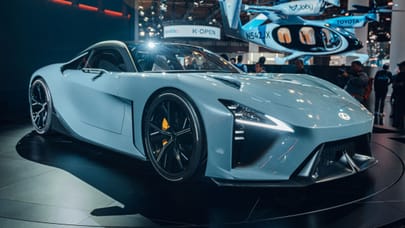
Government grant for plug-in hybrids scrapped
PHEVs no longer eligible for £2,500 grant, and EV rate slashed
Bad news, PHEV-shoppers. The government has changed its Plug-In Car Grant (PICG) so that it only benefits buyers of cars that can travel at least 70-miles on electric power. As no PHEV currently on sale in Britain meets this standard – most can travel only around 30-miles – the grant effectively now only benefits buyers of pure-electric cars. Boooo.
At the moment, EVs and PHEVs are grouped into three categories. Category one cars have CO₂ emissions of less than 50g/km and an electric range of at least 70 miles. Category two cars have CO₂ emissions of less than 50g/km and can do between 10 and 69 miles on electric power, while category three cars have CO₂ emissions of 50 to 75g/km and must be able to do at least 20 miles without using their engines. C1s are all pure-EVS, like the Nissan Leaf and Renault Zoe, while C2s and C3s are typically PHEVs.
The changes, which come into effect on November 9th and will apply to the next 35,000 low-emission vehicles sold, eliminate categories two and three and slashes the grant for C1s from £4,500 to £3,500.
This is especially bad news for companies like Mitsubishi, which sells a shedload of PHEVs (and not much else) in the UK. It said it was “surprised and disappointed” at the government’s decision.
A statement supplied to TG.com said: “Now should be the ideal time for the Government to incentivise Plug-in hybrid technology, not pull its support, because such technology forms the perfect segue between conventional petrol and diesel powered and full electric vehicles, particularly as the charging network is nowhere near evolved enough to support widespread full EV use.”
The government says “plug-in hybrid vehicles are among the cleanest on the road, and can deliver significant CO2 savings compared to petrol/diesel cars. These vehicles will continue to receive support through lower car tax rates, grants for charging infrastructure and local incentives (such as free parking).”
Top Gear
Newsletter
Thank you for subscribing to our newsletter. Look out for your regular round-up of news, reviews and offers in your inbox.
Get all the latest news, reviews and exclusives, direct to your inbox.








